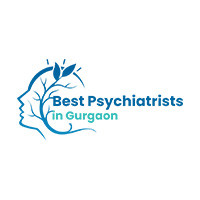Understanding the Different Types of Eating Disorders

Strong 8k brings an ultra-HD IPTV experience to your living room and your pocket.
Eating disorders are illnesses that cause serious disturbances to your everyday diet, such as eating tiny amounts of food or severely overeating. They can affect people of any age, gender, or background. Understanding these disorders is crucial because early intervention can lead to more effective treatment and recovery.
The Nature of Eating Disorders
Eating disorders go beyond food; they often reflect an individual's attempt to cope with emotional challenges and a need for control. These disorders may also serve as mechanisms for dealing with stress, trauma, or personal turmoil, making them deeply rooted in psychological processes. It's essential to approach them not just as dietary issues but as complex mental health disorders.
Who is Affected?
Eating disorders do not discriminate, impacting individuals across various demographics. They affect people of all ages, genders, and backgrounds, although they are most commonly diagnosed in adolescents and young adults. The prevalence among diverse groups highlights the importance of awareness and understanding across different communities and cultures.
The Importance of Early Intervention
Early intervention is crucial in the effective treatment of eating disorders. When detected early, treatment can be more successful, and the likelihood of a full recovery increases. Recognizing early symptoms and seeking eating disorder psychologist help promptly can prevent the disorder from becoming more severe and mitigate long-term physical and emotional consequences.
Types of Eating Disorders
There are several types of eating disorders, each with its own unique characteristics and symptoms. Let's delve into the most common ones.
Anorexia Nervosa
Anorexia nervosa is characterized by an intense fear of gaining weight and a distorted body image, leading to restricted food intake and excessive weight loss. People with Anorexics see themselves as overweight even when they are dangerously underweight. They may also engage in extreme dieting, excessive exercise, or purging behaviors.
Symptoms of Anorexia Nervosa
Extremely Restricted Eating: Individuals with anorexia often limit their food intake to dangerously low levels, sometimes eating only a few hundred calories per day. This self-imposed starvation stems from a deep-seated fear of gaining weight.
Intense Fear of Gaining Weight: Despite being underweight, those with anorexia experience overwhelming anxiety about becoming fat. This fear drives their restrictive eating habits and often leads to compulsive behaviors aimed at weight control.
Distorted Body Image: People with anorexia often have a skewed perception of their body size and shape. They may perceive themselves as overweight despite clear evidence to the contrary, which reinforces their restrictive eating habits.
Denial of the Seriousness of Low Body Weight: Many individuals with anorexia are unable to recognize the medical risks associated with their low body weight. This denial can be a significant barrier to seeking and accepting treatment.
Obsession with Food, Dieting, and Body Image: Anorexia is often accompanied by an intense preoccupation with food, recipes, and dieting. Individuals may spend excessive time planning meals or engaging in rituals around food preparation and consumption.
Bulimia Nervosa
Bulimia nervosa involves cycles of binge eating followed by purging to prevent weight gain. This purging can include vomiting, using laxatives, or excessive exercise. Unlike anorexia, people with bulimia often maintain a normal weight, making it harder to detect.
Symptoms of Bulimia Nervosa
Repeated Episodes of Binge Eating: Individuals with bulimia experience frequent episodes of consuming large quantities of food in a short period. These binges are often driven by emotional distress and result in feelings of loss of control.
Feeling a Lack of Control During Binges: During a binge, individuals often feel unable to stop eating, even when they are no longer hungry. This lack of control is a hallmark feature of bulimia.
Engaging in Behaviours to Prevent Weight Gain: After bingeing, individuals with bulimia may resort to purging behaviors such as self-induced vomiting, misuse of laxatives, or excessive exercise. These actions are attempts to mitigate the perceived consequences of overeating.
Preoccupation with Body Shape and Weight: People with bulimia are often obsessed with their body image and weight, which can drive their compulsive behaviors. This preoccupation can lead to frequent weight fluctuations and emotional distress.
Often Eating in Secret: To avoid judgment or embarrassment, individuals with bulimia may binge in secret. This secrecy can contribute to feelings of shame and guilt, further perpetuating the cycle of disordered eating.
Binge Eating Disorder
Binge eating disorder is characterized by regular episodes of eating large quantities of food, often quickly and to the point of discomfort. Unlike bulimia, binge eating episodes are not followed by purging, leading to overweight or obesity.
Symptoms of Binge Eating Disorder
Eating Large Amounts of Food in a Short Period: Individuals with binge eating disorder frequently consume excessive quantities of food rapidly. These episodes often occur in response to emotional triggers or stressors.
Eating When Not Physically Hungry: People with binge eating disorder may eat even when they are not hungry, using food as a coping mechanism for emotional distress or boredom.
Eating Until Uncomfortably Full: During a binge, individuals often continue eating until they feel physically uncomfortable. This behavior can lead to significant physical discomfort and emotional distress.
Eating Alone Due to Embarrassment: Shame and embarrassment about the quantity of food consumed often lead individuals to eat in isolation. This secrecy can exacerbate feelings of guilt and loneliness.
Feeling Disgusted, Depressed, or Guilty After Overeating: After a binge, individuals may experience intense negative emotions such as disgust, guilt, or depression. These feelings can perpetuate the cycle of binge eating as a coping mechanism.
Other Specified Feeding or Eating Disorder (OSFED)
OSFED is a category for eating disorders that do not meet the specific criteria for anorexia, bulimia, or binge eating disorder but still represent a significant problem. This includes atypical anorexia (weight is not below normal), bulimia (lower frequency), binge eating (lower frequency), purging disorder, and night eating syndrome.
Causes and Risk Factors
Eating disorders can be caused by a combination of genetic, biological, behavioral, psychological, and social factors. Common risk factors include:
Genetic and Biological Factors
Genetics can play a significant role in the development of eating disorders. Individuals with a family history of eating disorders may have a higher predisposition to developing similar conditions. Additionally, biological factors such as hormonal imbalances or brain chemistry alterations can contribute to the onset and maintenance of these disorders.
Psychological Factors
Psychological factors, including low self-esteem, perfectionism, and impulsivity, are often associated with eating disorders. Individuals may develop disordered eating patterns as a way to cope with underlying psychological issues such as anxiety, depression, or trauma. Addressing these psychological factors is crucial in the treatment process.
Social and Cultural Influences
Cultural pressures to conform to unrealistic body standards can significantly impact the development of eating disorders. The portrayal of idealized body types in media and societal emphasis on thinness can contribute to body dissatisfaction and unhealthy behaviors. Social environments, including peer pressure and bullying, can also play a role in the onset of eating disorders.
Traumatic Life Events
Experiencing traumatic events, such as abuse, loss, or significant life changes, can trigger the onset of eating disorders. Trauma can lead to feelings of helplessness and a lack of control, which individuals may attempt to manage through disordered eating behaviors. Understanding the link between trauma and eating disorders is vital for effective treatment.
Treatment for Eating Disorders
Effective treatment for eating disorders typically involves a combination of therapy, nutritional education, and medical monitoring. Seeking help from professionals, such as psychiatrists and the best doctors for eating disorder treatment, is crucial. In regions like Gurgaon and Delhi NCR, there are numerous specialists who offer comprehensive care.
Therapy Options
Cognitive behavioural therapy (CBT) focuses on changing unhealthy eating behaviours and thoughts. CBT helps individuals recognize and alter negative thought patterns related to food and body image, promoting healthier coping mechanisms.
Family-Based Therapy (FBT): Involves family members in the recovery process. FBT empowers families to support their loved ones, helping to restore healthy eating patterns and improve communication and understanding.
Interpersonal Therapy (IPT): Addresses interpersonal issues that may contribute to the eating disorder. IPT focuses on improving relationships and communication skills, reducing the impact of interpersonal stressors on disordered eating behaviors.
Medical and Nutritional Support
Nutritional Counselling: To develop healthy eating habits and restore proper nutrition. Nutritional counselling provides individuals with the knowledge and tools needed to make informed dietary choices, fostering a balanced relationship with food.
Medication: Sometimes prescribed to treat related conditions like anxiety or depression. Medications can help manage co-occurring mental health issues, supporting the overall treatment plan and improving outcomes for individuals with eating disorders.
Finding top psychiatrists in Gurgaon
If you or someone you know is struggling with eating disorders, it's important to seek help from psychiatrists in Gurgaon. In Gurgaon and Delhi NCR, there are many qualified psychiatrists and doctors specializing in eating disorder treatment. They can offer the guidance and support needed for recovery. Reaching out to these experts is a crucial step in the journey to healing, as they provide personalized care and evidence-based treatments tailored to individual needs.
Conclusion
Eating disorders are serious mental health conditions that require attention and professional intervention. Understanding the different types of eating disorders and recognizing the symptoms can lead to early diagnosis and treatment. If you suspect that you or someone you care about is suffering from an eating disorder, reaching out to the best doctors and psychiatrists for eating disorder treatment in your area is a critical step toward recovery.
With the right support and treatment, individuals struggling with eating disorders can achieve a healthier relationship with food and their bodies. Remember, recovery is possible, and help is available. It's essential to prioritize mental health and well-being, acknowledging that seeking assistance is a sign of strength and a vital step toward a brighter, healthier future.
Related Blogs: Autism Spectrum Disorder
Note: IndiBlogHub features both user-submitted and editorial content. We do not verify third-party contributions. Read our Disclaimer and Privacy Policyfor details.



